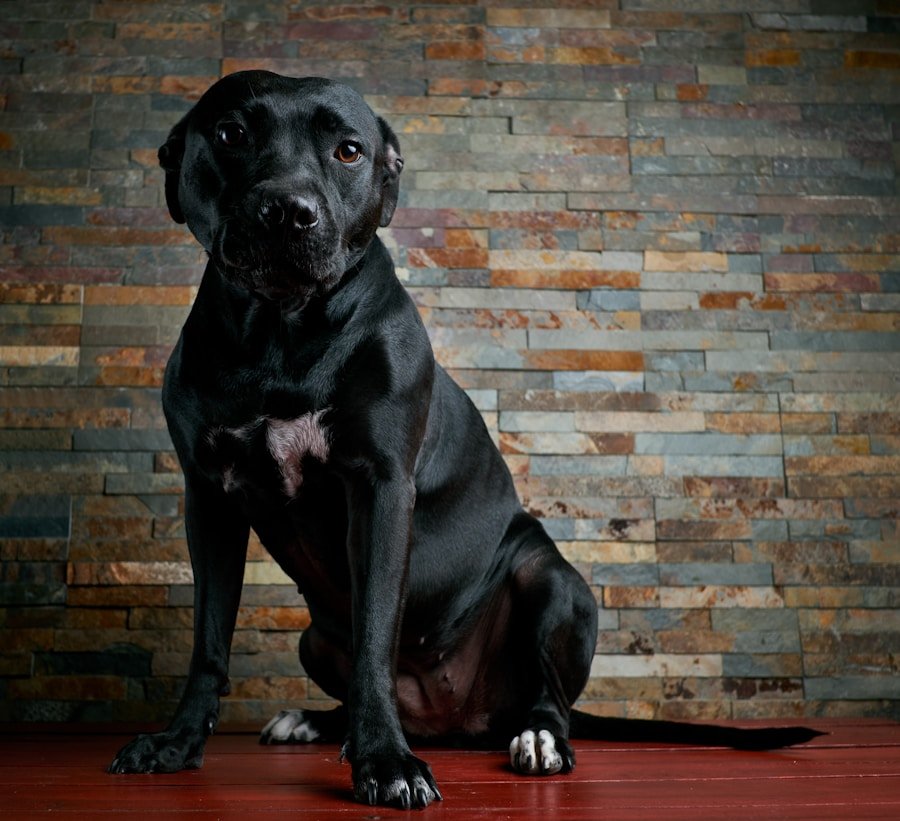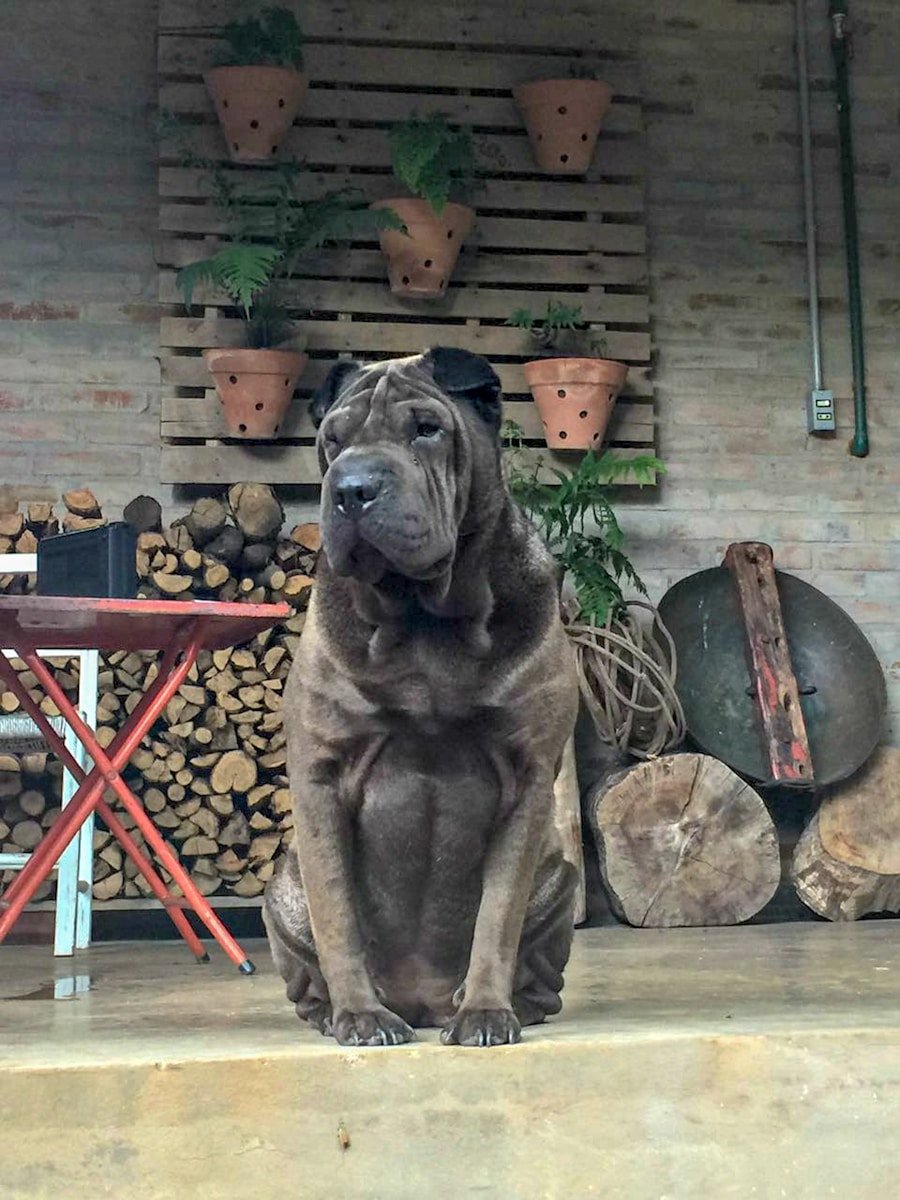Table of Contents
The Cane Corso, a breed that exudes strength and elegance, has a rich history that dates back to ancient Rome. Originally bred as a working dog, the Cane Corso was utilized for various tasks, including hunting large game and guarding livestock. Its lineage can be traced back to the Roman Molossus, a large dog known for its prowess in battle and its role as a protector.
As the Roman Empire expanded, so did the presence of these formidable dogs, which were often employed in warfare and as companions to soldiers. As time progressed, the Cane Corso became more than just a war dog; it evolved into a versatile working breed. In rural Italy, these dogs were essential for herding cattle and protecting farms from intruders.
Their loyalty and protective instincts made them invaluable to farmers and families alike. However, with the decline of agricultural practices in the 20th century, the breed faced near extinction. Fortunately, dedicated enthusiasts and breeders recognized the Cane Corso’s potential and worked tirelessly to revive it.
Today, the breed is celebrated not only for its impressive physical attributes but also for its unwavering loyalty and companionship. Sure, here is the sentence with the link:
I love to learn about pet care on Pawwise.
Key Takeaways
- The Cane Corso is an ancient Italian breed that was originally used as a guard dog and for hunting purposes.
- This breed is known for its large and muscular build, with a short coat that comes in various colors such as black, fawn, and brindle.
- Cane Corsos are intelligent and loyal dogs, but they require early socialization and consistent training to ensure good behavior.
- Regular exercise and mental stimulation are essential for Cane Corsos to prevent boredom and destructive behavior.
- Health concerns for Cane Corsos include hip dysplasia, bloat, and certain genetic conditions, so regular vet check-ups and a balanced diet are important for their well-being.
Physical Characteristics and Temperament
Physical Characteristics
Males typically weigh between 110 to 150 pounds, while females range from 88 to 110 pounds. Their height can vary from 24 to 28 inches at the shoulder, giving them a commanding presence. The breed features a broad head with a square-shaped muzzle, strong jaws, and expressive eyes that convey intelligence and alertness. Their coat is short and dense, coming in various colors such as black, fawn, gray, and brindle.
Temperament
They are often described as confident, loyal, and protective. While they can be reserved around strangers, they are affectionate and devoted to their families. This breed thrives on companionship and is known to form strong bonds with its owners.
Socialization and Training
However, their protective nature means they require proper socialization from an early age to ensure they are well-adjusted and comfortable in various situations. With the right training and social exposure, Cane Corsos can be gentle giants who are both loving family members and vigilant guardians.
Training and Socialization Needs

Training a Cane Corso is an essential aspect of responsible ownership.
Positive reinforcement techniques work best with this breed, as they respond well to praise and rewards.
Early obedience training is crucial to establish boundaries and ensure that your Cane Corso understands commands. Basic commands such as sit, stay, and come should be taught early on to foster good behavior. Socialization is equally important for Cane Corsos.
Exposing them to various environments, people, and other animals from a young age helps them develop into well-rounded adults.
Regular trips to dog parks or organized playdates with other dogs can enhance their social skills and reduce any tendencies toward overprotectiveness.
Exercise and Activity Requirements
| Age Group | Exercise and Activity Requirements |
|---|---|
| Children (3-5 years) | At least 3 hours of physical activity per day, including active play, running, and jumping |
| Children and Adolescents (6-17 years) | At least 1 hour of moderate to vigorous physical activity per day, including activities like running, swimming, and sports |
| Adults (18-64 years) | At least 150 minutes of moderate-intensity aerobic activity or 75 minutes of vigorous-intensity aerobic activity per week, plus muscle-strengthening activities on 2 or more days per week |
| Older Adults (65+ years) | At least 150 minutes of moderate-intensity aerobic activity or 75 minutes of vigorous-intensity aerobic activity per week, plus balance and muscle-strengthening activities on 2 or more days per week |
Cane Corsos are an active breed that requires regular exercise to maintain their physical health and mental well-being. Daily walks are essential, but they also benefit from more vigorous activities such as running or playing fetch. Engaging in interactive games not only provides physical stimulation but also strengthens the bond between the dog and its owner.
A bored Cane Corso can become destructive or develop behavioral issues, so it’s crucial to keep them mentally challenged as well. In addition to structured exercise routines, Cane Corsos enjoy participating in activities that allow them to use their natural instincts. Agility training or obedience competitions can be excellent outlets for their energy while also providing mental stimulation.
Owners should aim for at least an hour of exercise each day to keep their Cane Corso happy and healthy. This commitment to physical activity will help prevent obesity—a common concern in larger breeds—and promote overall well-being.
Health and Wellness Considerations
Like all breeds, Cane Corsos are prone to certain health issues that potential owners should be aware of. Hip dysplasia is one of the most common concerns in larger breeds, including the Cane Corso. This genetic condition can lead to arthritis or mobility issues if not managed properly.
Regular veterinary check-ups are essential for early detection of any health problems. Additionally, maintaining a healthy weight through proper diet and exercise can significantly reduce the risk of developing joint issues. Another health concern for Cane Corsos is bloat, also known as gastric torsion or twisted stomach.
This condition can be life-threatening if not treated immediately. Owners should be aware of the signs of bloat—such as restlessness, drooling, or a distended abdomen—and seek veterinary assistance promptly if they suspect their dog may be affected. Regular dental care is also important for this breed; brushing their teeth several times a week can help prevent dental disease.
Caring for a Cane Corso

Caring for a Cane Corso involves more than just providing food and shelter; it requires commitment to their physical and emotional needs. A balanced diet tailored to their age, size, and activity level is crucial for maintaining optimal health. High-quality dog food that lists meat as the primary ingredient is recommended.
Owners should consult with their veterinarian to determine the best feeding schedule and portion sizes for their individual dog. Housing considerations are also important for Cane Corsos. While they can adapt to various living situations, they thrive in homes with ample space to move around.
A secure yard is ideal for allowing them to play safely outdoors while being monitored. Social interaction is vital for this breed; they should not be left alone for extended periods as they may become bored or anxious. Regular grooming is relatively low-maintenance due to their short coat; however, brushing them weekly can help reduce shedding and keep their coat healthy.
Common Misconceptions and Myths
Despite their popularity, there are several misconceptions surrounding the Cane Corso breed that can deter potential owners from considering them as companions. One common myth is that they are inherently aggressive due to their protective nature. While it’s true that Cane Corsos can be wary of strangers, this behavior stems from their instinct to protect their family rather than an innate aggression.
With proper training and socialization, they can be friendly and well-adjusted dogs. Another misconception is that Cane Corsos require extensive training experience due to their size and strength. While they do need consistent training, first-time dog owners can successfully raise a Cane Corso with dedication and commitment.
It’s essential for owners to educate themselves about the breed’s needs and characteristics before bringing one into their home. With patience and love, even novice owners can cultivate a strong bond with this remarkable breed.
The Cane Corso as a Family Companion
The Cane Corso makes an excellent family companion when placed in the right environment. Their loyalty and protective instincts make them natural guardians of the home, providing peace of mind for families with children or other pets. They are known for being gentle with children when properly socialized from an early age; however, supervision during playtime is always recommended due to their size and strength.
Families who lead active lifestyles will find that Cane Corsos thrive on engagement and exercise. They enjoy participating in family activities such as hiking or playing in the yard, making them wonderful companions for outdoor adventures. Their affectionate nature means they will often seek out attention from family members, forming deep bonds that last a lifetime.
With proper care, training, and socialization, a Cane Corso can become an integral part of any family dynamic—offering love, loyalty, and protection in equal measure.
If you are a proud owner of a Cane Corso, you may be interested in learning about the different types of dog collars available for your beloved pet. Check out this article on 8 Different Types of Dog Collars for You to find the perfect collar that suits your Cane Corso’s needs and style.
FAQs
What is a Cane Corso?
The Cane Corso is a large Italian breed of dog that is known for its strength, intelligence, and loyalty. It is often used as a guard dog and for protection.
What does a Cane Corso look like?
Cane Corsos are muscular and athletic dogs with a short coat that can come in various colors, including black, fawn, and brindle. They have a large head, strong jaws, and a confident, alert expression.
What is the temperament of a Cane Corso?
Cane Corsos are known for being affectionate and loyal to their families, but also protective and wary of strangers. They are intelligent and trainable, but require early socialization and consistent training.
How much exercise does a Cane Corso need?
Cane Corsos are a high-energy breed and require regular exercise to keep them healthy and happy. They benefit from daily walks, playtime, and mental stimulation.
Are Cane Corsos good with children and other pets?
When properly socialized and trained, Cane Corsos can be good with children and other pets in the household. However, due to their size and protective nature, they should always be supervised around small children and introduced carefully to other animals.
What are the common health issues for Cane Corsos?
Cane Corsos are prone to certain health issues, including hip dysplasia, bloat, and certain heart conditions. Responsible breeding and regular veterinary check-ups can help mitigate these risks.
How long do Cane Corsos live?
On average, Cane Corsos have a lifespan of 9-12 years. With proper care, nutrition, and exercise, they can live long and healthy lives.


